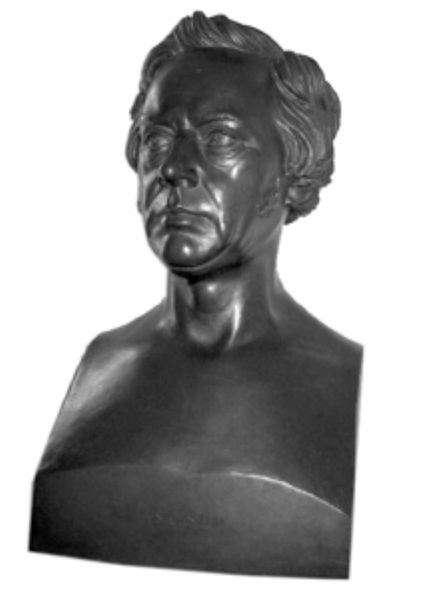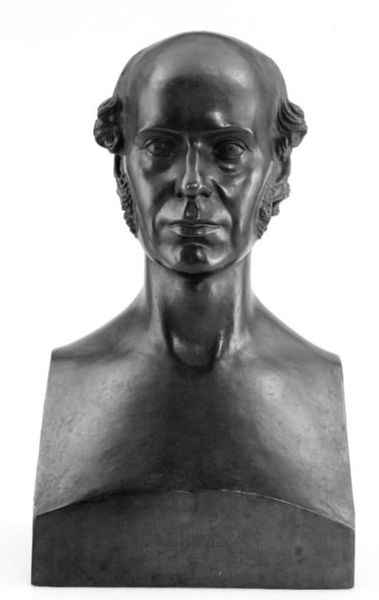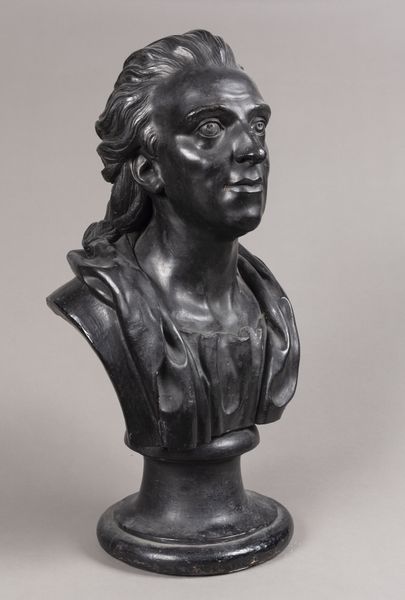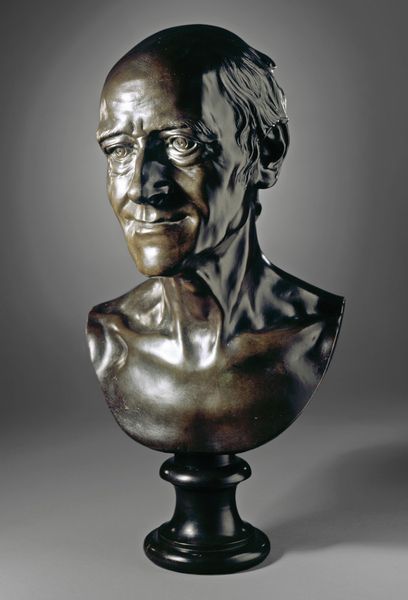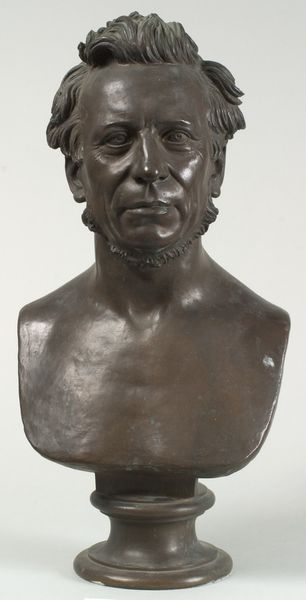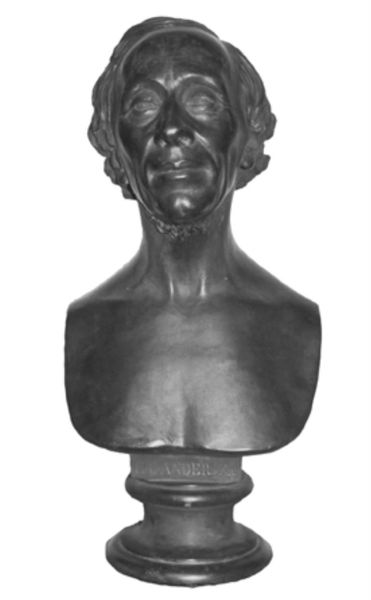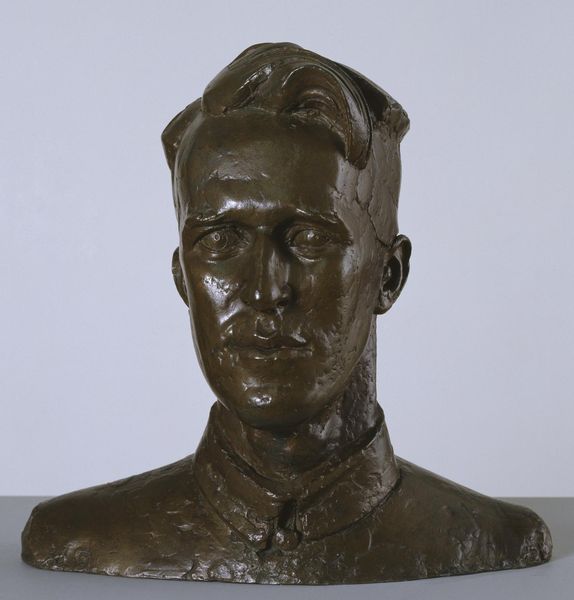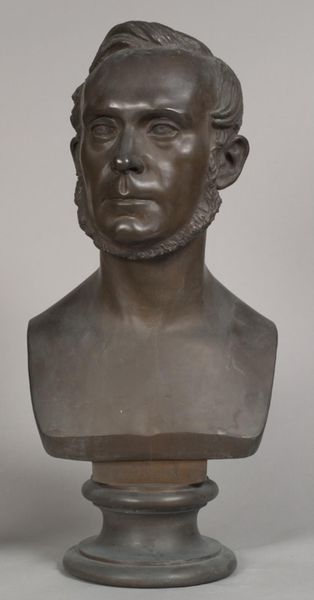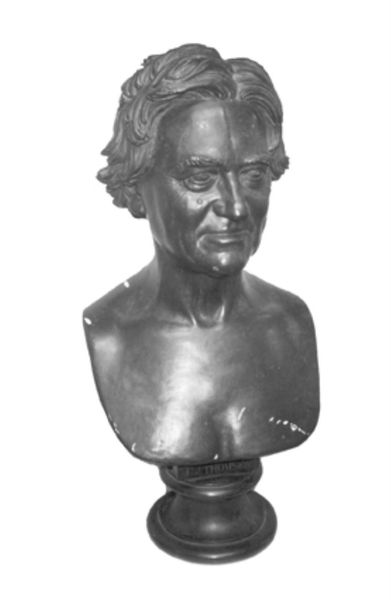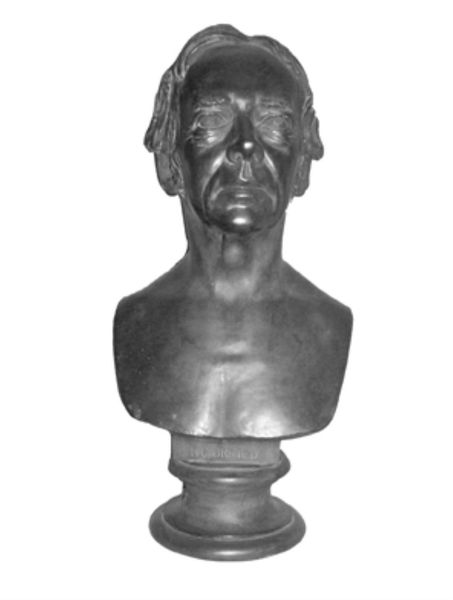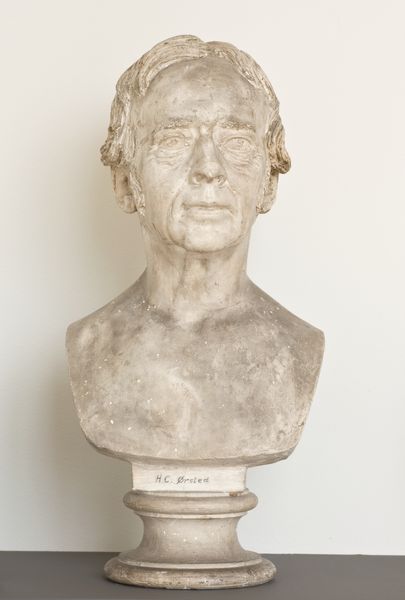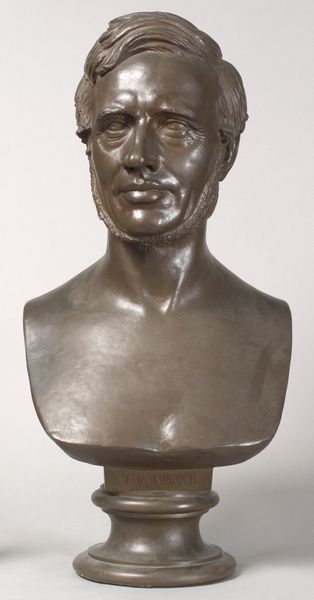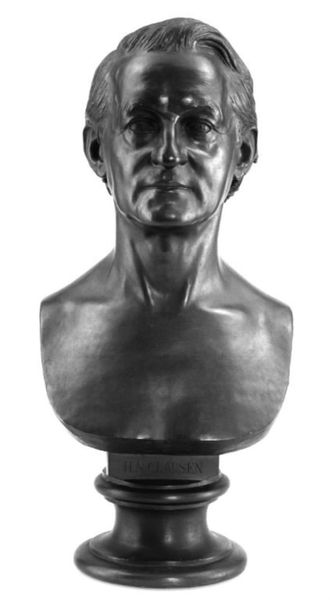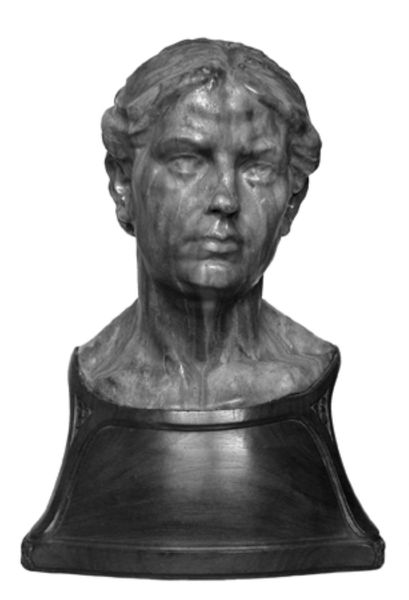
bronze, sculpture
#
portrait
#
neoclacissism
#
sculpture
#
bronze
#
sculpture
#
romanticism
#
academic-art
#
statue
Dimensions: height 61 cm, width 30 cm, depth 25.2 cm, weight 59 kg
Copyright: Rijks Museum: Open Domain
This is a cast-iron bust of King William I, made by Enthoven & Co. At a time of significant social and political upheaval, William I became the first King of the Netherlands in 1815, unifying the country after years of French rule. Enthoven & Co.'s bust is not just a portrait, but a statement of power, crafted to project an image of strength and stability during a period of national formation. Consider how the choice of cast iron, a material associated with industry and progress, contributes to the narrative of a modernizing nation under William’s rule. Also, think about the historical context of monarchy and its relationship to gender. The bust presents William I in a traditionally masculine pose that reinforces his authority. Reflect on the emotional undercurrents of national identity and leadership that the bust evokes. It captures the complex relationship between a monarch and his people, revealing the hopes, anxieties, and aspirations of a nation finding its place in a changing world.
Comments
No comments
Be the first to comment and join the conversation on the ultimate creative platform.
